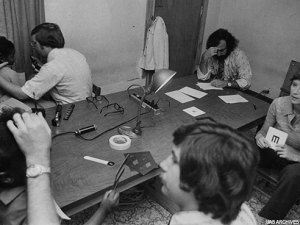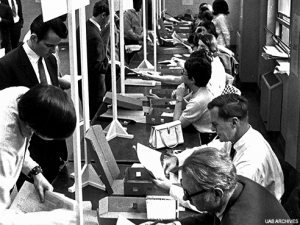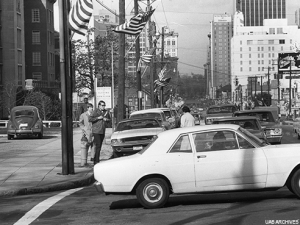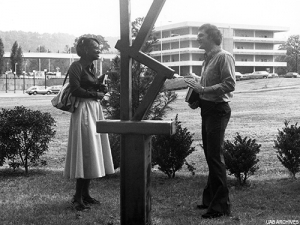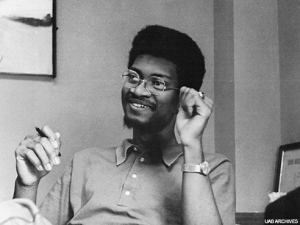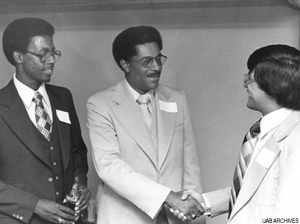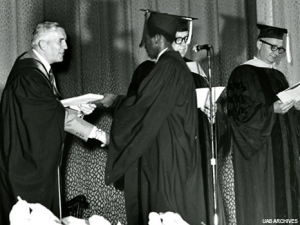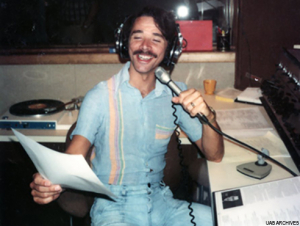 Students in UAB’s School of Engineering assembled a mechanical arm in June 1978; they were working to improve the device prototype as part of American Society of Mechanical Engineers (ASME) student competition.
Students in UAB’s School of Engineering assembled a mechanical arm in June 1978; they were working to improve the device prototype as part of American Society of Mechanical Engineers (ASME) student competition.
Today, the School of Engineering has taken a leading role in improving existing technology to better help fight coronavirus. When Justin Koch, director of the school’s undergraduate design lab, saw various maker groups were using 3D printers to make personal protective equipment (PPE), he contacted interim Dean Timothy Wick, Ph.D., to see about doing the same — but when the duo realized they could more efficiently produce PPE using laser cutting, they switched processes, and are on pace to make 1,000 reusable headbands and 10,000 face shields.
The school also partnered with UAB Quality and Safety to create High-Efficiency Particulate Air (HEPA) filters for renovated Power Air-Purifying Respirator machines, which enable people to breathe freely in heavily polluted areas. Using CAD modeling and 3D printers, the Engineering and Innovative Technology Development’s Joseph Moore, a 2017 electrical and computer engineering graduate from UAB, and his team began producing up to 3.5 units per day.
And Selvum “Brian” Pillay, Ph.D., director of the Materials Processing and Applications Development (MPAD), has begun a home-based manufacturing operation, creating more than 400 face masks in just one month using household sewing machines and filter materials donated by a local company. Pillay took a template from the internet and modified it to accommodate the filter. Then he and his family began sewing the masks and distributing them to anyone who expressed a need, including UAB Facilities, which requested 30 masks for its essential workers. In addition to the people Pillay encountered providing everyday services, he says he also connected with a Facebook group to distribute the masks more widely. At peak production, his family was making around 50 masks per day.
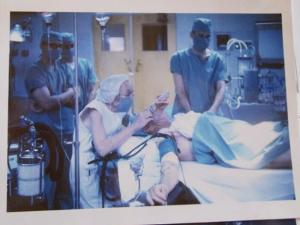
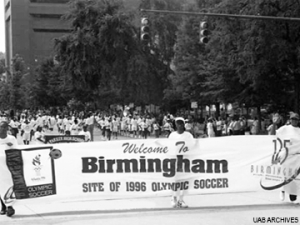
 During the 1996 Olympic Games, Legion Field was a host site for soccer games, which more than 431,000 people attended. UAB also was home to a practice site for Olympians.
During the 1996 Olympic Games, Legion Field was a host site for soccer games, which more than 431,000 people attended. UAB also was home to a practice site for Olympians.